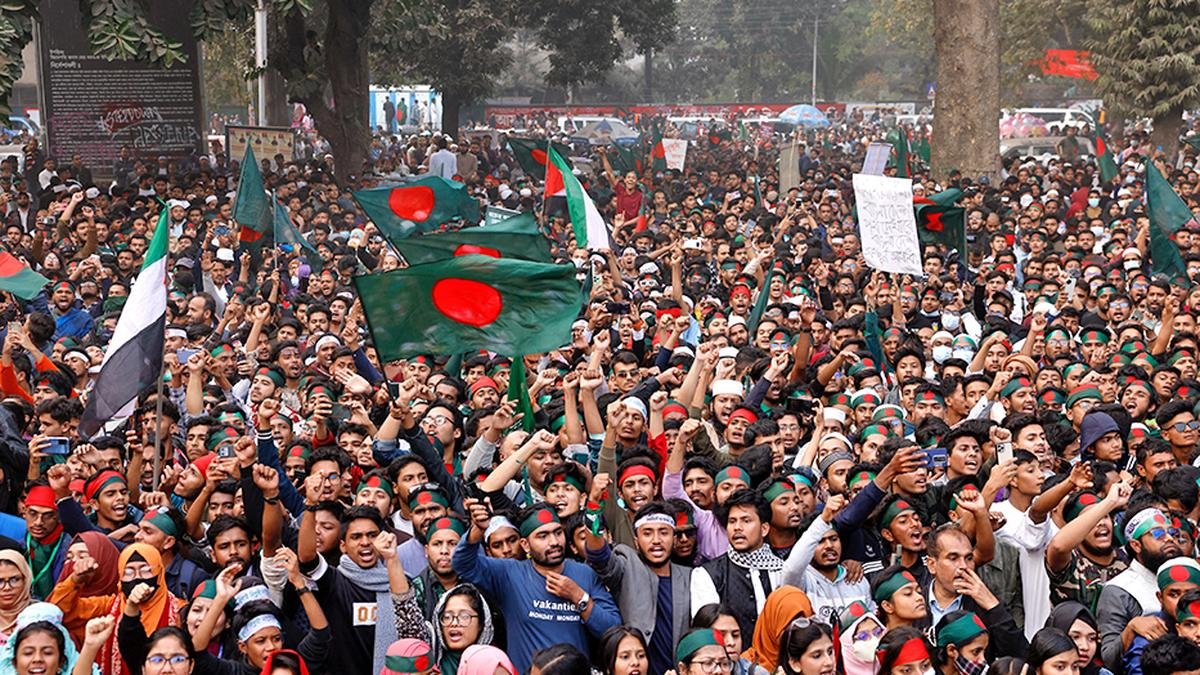Dozen died in Bangladesh detention after revolution: rights group

Odhikar, one of the South Asian nation’s largest human rights organisations, demanded justice from the interim government that took over after the student-led revolution that toppled former prime minister Sheikh Hasina.
| Photo Credit: Reuters
At least a dozen people died in detention in Bangladesh since last year’s revolution, including by torture and gunshot wounds, a rights group said Wednesday (February 12, 2025).
Odhikar, one of the South Asian nation’s largest human rights organisations, demanded justice from the interim government that took over after the student-led revolution that toppled former prime minister Sheikh Hasina.
Also read | Stability hangs in balance in Bangladesh as mob violence rises under the interim govt.
“The interim government should not let these crimes go unpunished,” Odhikar director ASM Nasiruddin Elan told AFP. “Those involved in extrajudicial killings must be brought to justice.”
Odhikar detailed in a report how security forces during Ms. Hasina’s 15-year-long autocratic rule engaged in widespread killings to bolster her power — and accused the same agencies of continuing to commit human rights violations since she fled.
Ms. Hasina escaped into exile to neighbouring India on August 5, capping an uprising in which the United Nations says more than 1,400 people could have been killed, and has since defied an arrest warrant to face trial for crimes against humanity.
Since she left, Bangladeshi security forces have carried out sweeping arrests against supporters of Ms. Hasina’s Awami League party and loyalists of what they dub her “fascist” ex-government.
Odhikar detailed 12 deaths that took place between August 9 and December 31, 2024.

Bangladesh’s security forces are “investigating all the cases”, Sami-Ud-Dowla Chowdhury, the armed forces’ public relations director, told AFP.
‘Right to justice’
“Even the friends of the fascist regime have a right to justice,” Elan said. “Extrajudicial killings must be prevented at any cost”.
Three of them were in police custody, and the others were under the control of other security units, including the armed forces and much-feared paramilitary Rapid Action Battalion (RAB).
At least seven victims died after torture, and four had gunshot wounds, according to Odhikar.
Another person was beaten and later pushed off a bridge by the police, it added.
Among the cases was the death of 18-year-old Elahi Sikdar from the city of Gopalganj, who was arrested for allegedly attacking soldiers. His injured corpse was later recovered from a hospital.
His brother Kudrat Sikdar said that, like many families of the dead, they would not be filing a case.
“We have accepted his death as destiny,” Kudrat Sikdar said.
In response to the report, Bangladesh police spokesperson Inamul Haque Sagar told AFP that officers had been ordered to “refrain from activities beyond their jurisdiction”.
The armed forces were granted judicial powers enforcement activities like the police — including making arrests — after the revolution.
Army chief Waker-Uz-Zaman said he worried about that role being extended.
“The more our people stay in the field, the more there is the fear that they will face unlawful activities,” he told the Prothom Alo newspaper.
Published – February 12, 2025 09:46 pm IST




Post Comment